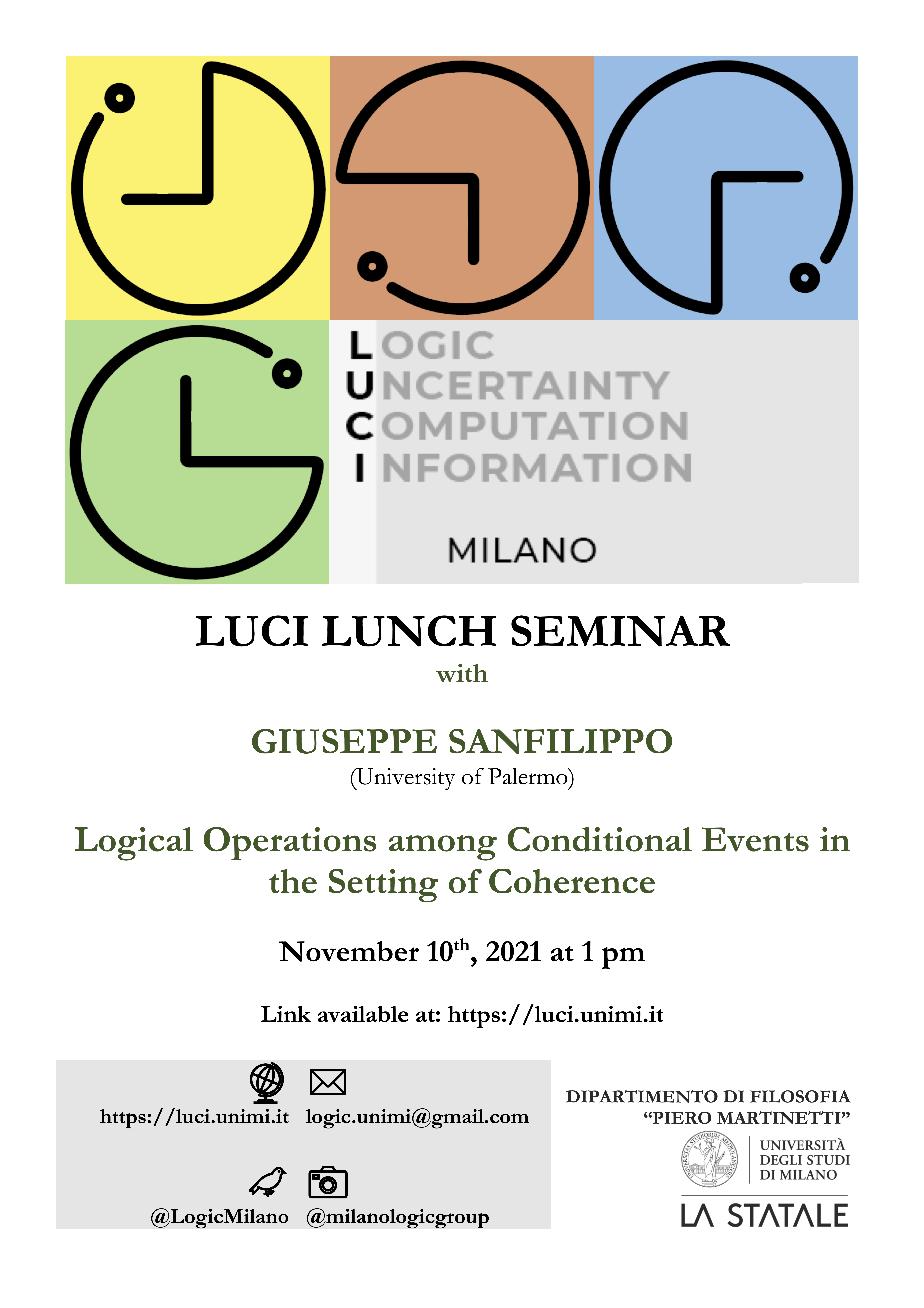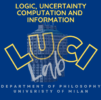This Wednesday, come learn and have a chat about uncertain reasoning with us! Our group is thrilled to announce that Giuseppe Sanfilippo (University of Palermo) will give an invited talk on logical operations among conditional events under coherence. His talk will begin at 1 PM (CET) sharp on Wednesday the 10th. As usual, don’t forget to visit our youtube channel if you missed our past talks and follow us on Twitter to stay up to date with our latest news.

Title: Logical operations among conditional events in the setting of coherence
Abstract: In the subjective theory of probability of de Finetti, given any event A, the probability P(A) represents the degree of belief on A. In order to assess P(A), in the betting framework, one agrees to pay, for instance, P(A) by receiving 1 or 0 according to whether A turns out to be true or false, respectively. The consistency of the probability assessments is checked by the coherence principle. Let us imagine an experiment where you flip a coin twice; for each (valid) flip there are two possible outcomes: “head” or “tail”. Let us consider the conjunction “the outcome of the first flip is head and the outcome of the second flip is head”. By defining the events A =“the outcome of the first flip is head” and B =“the outcome of the second flip is head”, we denote by AB the previous conjunction, which is true when both A and B are true, and false when A or B is false. If you judge P(AB)=p, then in a bet on AB you agree to pay, for instance, p by receiving 1, or 0, according to whether AB turns out to be true, or false, respectively. What is the “logical value” of AB when the outcome of the first coin is head and the second coin stands up? What happens of the bet? By defining valid the flip when ”the coin does not stand, or similar things”, that is when ”the outcome of the flip is head or tail”, the previous conjunction can be interpreted as a conjoined conditional like “the outcome of the first flip is head, given that it is head or tail, and the outcome of the second flip is head, given that it is head or tail.” How can we assess a degree of belief on this conjoined conditional? Another aspect concerns the assessment of degrees of belief on iterated conditionals like “if the mother is angry if the son gets a B, then she will be furious if the son gets a C”. Usually, in literature, the conjunction and the disjunction of conditional events have been defined as suitable conditional events. However, in this way many classical probabilistic properties are lost. We illustrate the notions of conjunction, disjunction and conditioning among conditional events, which are defined (not as conditional events, but) as suitable conditional random quantities with values in [0,1], in the setting of coherence. These logical operations satisfy the basic probabilistic properties valid for unconditional events. We show that some, intuitively acceptable, compound sentences on conditionals can be analyzed in a rigorous way in terms of suitable iterated conditionals. We give a characterization of the probabilistic entailment of Adams for conditionals. Moreover, by exploiting iterated conditionals, we show that the p-entailment of a conditional event E|H from a p-consistent family F is characterized by the property that the iterated conditional (E|H)|C(F) is constant and coincides with 1. Finally, we illustrate the characterization, in terms of iterated conditionals, of some well known p-valid and non p-valid inference rules.
Zoom link: https://us02web.zoom.us/j/84034724300
